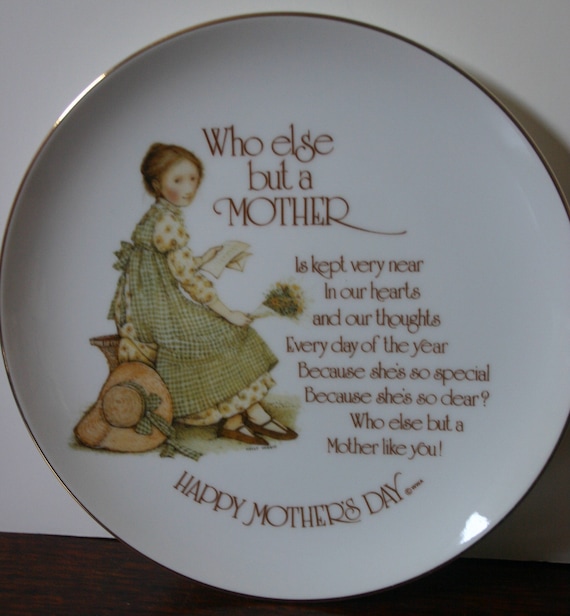Who Else but a Mother?
Contents:
See all her fashion choices—from arrivals to the Venice premiere to London on onward—and play spot the difference from old and new Dior on. A poem for mom is short and sweet; a jumping-off point for you to personalize, or just a way to voice all the complex emotions that aren't so easy to put into words.
The deification of mothers not only delegitimises the relationship fathers, neighbours, friends, grandparents, teachers and carers have with children, it also diminishes the immense worth and value of these relationships. How do gay dads feel about this line, I wonder?
Or the single dads, stepdads or granddads? Is it the actual birth? Or is a "mother" simply a term to describe an expectation to care for children without payment? Is this empty slogan used to compensate women for gouging holes from potential careers by spending years out of the workplace without recognition? Even if it were a job, there is no way being a professional mother could be the hardest when compared to working 16 hours a day in a clothing factory in Bangladesh, making bricks in an Indian kiln, or being a Chinese miner.
There is also a curious sliding scale to the argument.

The more hours of drudgery you endure the more of a mother you are and, therefore, the more important your job is. How do you distill the intense, loving, maddening, crazy connection you have to your mom into a few sentences? They can be sweet, silly, funny—or can even honor the relationship you have with a mother who is in heaven.
- But Mom, Everybody Else Does.
- Never-ending-snake: An Ella Clah Novel.
- Doxology/Gloria Patri;
- Tops and Bottoms: An Erotic Story of Lesbian Submission?
- The Grace Pipeline.
- Will There Be A Tomorrow?.
- Mothers Day Poems That Will Make Mom Laugh and Cry | Real Simple;
When you're a child she walks before you To set an example. When you're a teenager she walks behind you To be there should you need her. When you're an adult she walks beside you So that as two friends you can enjoy life together.
View all gallery
Your mom is hilarious, and the poem you choose should reflect the sometimes irreverent take she has on life. You taught me how to wash my face And how to use the potty. You made me eat up all my greens And wiped my nose when snotty. You taught me to say Please and Thanks, Because politeness is the way. These simple poems make a point with just a few words.
Mother’s Day Poems That Will Make Mom Laugh and Cry
How sturdy they were and how slowly they turned themselves into galaxies, domes of ghost stars barely visible by day, pale cerebrums clinging to life on tough green stems. Like you, in the end. Of course they are empty shells, without hope of animation. Of course they are artifacts. Close View all gallery.
29 Beautiful Mother’s Day Quotes to Show Mom How Much You Love Her
Close Share options Pinterest. But in that moment, I finally accepted that I would never experience a rush of maternal love for a newborn. The emotion was like bereavement, something I had to go through to be able to move forward with my life. And I'm glad to say that during the past two and a half years, I have worked through my grief and begun to carve out a child-free future for myself.
However, what I never bargained for on that dark day in January , was that I would feel increasingly ostracised in the company of women I had known for years. Women who are different from me in just one respect: Motherhood has become an all-consuming role during the past couple of decades — dominating women's thoughts and conversations — possibly because the pressure on mothers to get it right is greater than ever.
When a man has a child he remains who he always was and becomes a father to boot, but once a woman has a baby she is a mother first, and perhaps something else, a teacher or a lawyer, in addition.
Explore Real Simple
I don't blame mothers for their single-issue approach to life; I would probably have been the same. However, the result is that women are separating into two tribes: It is perhaps all the more significant because the number of women who, like me, will never have children, through choice or circumstance, is steadily growing.
So, if a fifth of women are child-free, why do we feel so peripheral, so shut out? Perhaps — despite decades of feminism — it's because there's an assumption that the only truly worthwhile job a woman can do is to raise children. Jennifer Leonard, a chartered psychologist and parenting coach, agrees that mothers of young children gravitate towards one another.

It's a growing trend, partly because we don't have the extended families around who used to provide that kind of support. Women who don't have children are in a minority, so as more of their friends have babies and build mummy networks, they can end up feeling sidelined.
The division between mothers and me was brought home at a party recently, organised by the mother of one of my goddaughters. Many of the guests were friends I hadn't seen for a long time. But when I tried to chat, telling them what I was up to, they couldn't concentrate on what I was saying. I saw panic in their eyes, as if they didn't know how to have a conversation that wasn't about their offspring.
However, I couldn't help but feel I was bothering them by talking about something other than their children. I was happy to listen to tales of potty training, broken nights and teenage hormones.